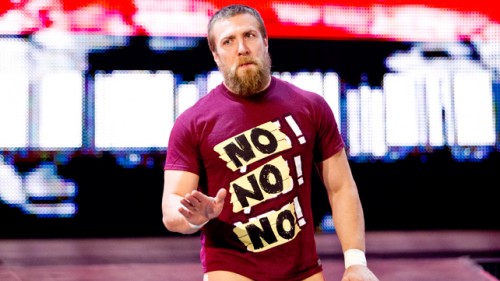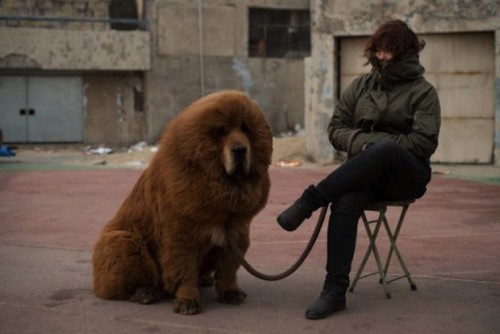
 1) Well, if you planned on taking your kids to see Planes, thinking it would be the aviary of the Cars legacy, think again. As it has happened before, Pixar has created something seemingly unrepeatable, except unto itself (and unto scripture), and the Atlantic tells us what it is. Luke Epplin says it is the Charlie Brown that is missing in today’s films—and replacing it is the “magic-feather” of self-determination that any chalky character can stir up within to reach his or her dreams. It’s not that the cult of self-esteem is just the name of the game with most kiddy films, it is that movies are getting it stock from every corner of the child development market (and we’d bargain it doesn’t stop with kiddos). Says Epplin:
1) Well, if you planned on taking your kids to see Planes, thinking it would be the aviary of the Cars legacy, think again. As it has happened before, Pixar has created something seemingly unrepeatable, except unto itself (and unto scripture), and the Atlantic tells us what it is. Luke Epplin says it is the Charlie Brown that is missing in today’s films—and replacing it is the “magic-feather” of self-determination that any chalky character can stir up within to reach his or her dreams. It’s not that the cult of self-esteem is just the name of the game with most kiddy films, it is that movies are getting it stock from every corner of the child development market (and we’d bargain it doesn’t stop with kiddos). Says Epplin:
The magic-feather syndrome has so thoroughly penetrated animated features that it’s difficult to imagine a film that doesn’t incorporate at least some of its tropes. Perhaps, you might be tempted to argue, kids movies have to be this way. But that’s easily debunked–just look at Pixar’s roster, which features a number of magic-feather narratives but also includes stories largely about family, friendship, and growing older.
Perhaps the best counterpoint–and the best example of just how much things have changed–can be found in Charles M. Schulz’s Peanuts. In the comic strip, Schulz ridiculed the notion that individuals are likely to succeed merely because they believe in themselves. Every year Charlie Brown convinces himself that he is finally going to kick Lucy’s football, and each time she snatches it away at the last second. In a 1968 interview with Psychology Today, Schulz implied that his characters pick on Charlie Brown because he is too much of a dreamer: “I think they are justified sometimes in their treatment of him. Charlie Brown is too vulnerable. He is full of hope and misdirected faith.” Failure, unrequited love, and self-doubt are the norms in Peanuts, and nowhere is this better represented than in Schulz’s first feature-length film, A Boy Named Charlie Brown.
…A Boy Named Charlie Brown might come across now as harsh and unforgiving–especially to audiences that aren’t familiar with the comic strip’s cruel undercurrents–but its lessons are more enduring than those from movies where characters fulfill their impossible dreams. Charlie Brown learns through Linus’s tough-love speech that failure, no matter how painful, is not permanent, and that the best means of withstanding it is simply to show up the next day to school with the fortitude to try again. Losing also forces Charlie Brown to come to terms with his own limitations. He can’t rely on a miraculous victory to rescue him from his tormented childhood. He followed his dream, it didn’t pan out, and he ends up more or less where he started, only a little more experienced and presumably with a little more respect from his peers. They may no longer be able to refer to him as “failure-face,” but Lucy still yanks away the football when he becomes too hopeful. It’s incremental, rather than life-altering, progress.
Contemporary animated films would never emulate the tough life lessons of A Boy Named Charlie Brown, but they’d do well to reintroduce the twin notions of failure and humility. In a movie like Planes, it should be good enough for a modest crop-duster just to qualify for the Wings Around the Globe race. After all, the mere fact that Dusty is participating in this televised competition more than justifies his lofty aspirations. Besides, having Dusty win on his first outing gives young audiences the false impression that the road to self-actualization isn’t arduous and littered with speed bumps. His defeat wouldn’t need to be as crushing as Charlie Brown’s, but it might be humbling for Dusty to lose to a decorated, equally determined opponent and learn that life still goes on, even without a wholly happy ending.
Completely related is Giles Fraser piece in the Guardian this week regarding depression and medication. Fraser makes the point that unhappiness is a human scenario that often becomes unbearable, not because of the unhappiness itself, but because it is pathologized as such. In other words, we are haunted by the standard of Planes, of ourselves as that inner-happy-dream-achiever, which then provokes the unhappiness we feel. Certainly this is not a case against medication and pathological disorders and therapies, and while Fraser words it strongly, he is pointing more towards the anxieties that are heightened when the starting point is not an honest (or realistic) one. We suffer and, while popping palliatives (in any number of ways) may level the spikes, it will not wipe away what’s beneath.
Forget the fact that some people are miserable because they are struggling on zero-hours contracts, or have lost their partner or have been watching the news too much – if we translate misery into some sort of chemical imbalance then someone can make big money out of it. But unhappiness is often a perfectly proper response to the state of the world. If you have a s*** job or a s*** home life, being unhappy is hardly inappropriate. At best, many of the drugs we are popping only deal with the symptoms of all this, not the causes. At worst, they pathologise deviations for normalcy, thus helping to police the established values of consumer capitalism, and reinforcing the very unhappiness that they purport to cure.
Yes, there are some for whom happiness can be reclaimed by doing a bit more exercise or being more sociable. This sounds healthier than pills. But for those for whom these are not solutions, let’s not make it worse by insisting upon the compulsory happiness of the smiley face. For, like the drugs, this can be just another way of shutting people up.
2) For the theologians out there, this one from our friend Jono Linebaugh is a must-read. Entitled “The Good News of Final Judgment,” Jono discusses the seemingly bifurcated promises of Jesus—the promise of forgiveness, and the promise of judgment. Using “justification” as the means by which we understand (and join) these two concepts, he argues that judging “the quick and the dead” means good news.
What this all means is that justification is God’s final judgment. As Wilfried Joest writes, “there is no second decision after justification.” In the language of the Reformation, the “sole and sufficient basis” for our justification before God’s eschatological tribunal is Jesus Christ (solus Christus), freely given (sola gratia) to sinners in the word (solo verbo) that creates the faith (sola fide) to which Christ is present. In Jesus, God’s future word has invaded the present in such a way that, by faith, we know the future: “Who shall bring any charge against God’s elect? It is God who justified. Who is to condemn? It is Christ who died” (Rom 8:33-34).
And how can we talk about judgment without talking about the new Breaking Bad episode? If you haven’t watched yet, plug your ears now, but my goodness, that cold open! And Vulture really caught on to the religiously karmic (and Trekkie) patterns this episode in particular was carrying. Walter at the toilet psalter? Jesse “two miracles short”? “Battle Hymn of the Republic” playing in the law office?
Aaron Paul’s performance is, as nearly always, extraordinary here, communicating the psychic distress of a man who hates himself so much that he can hardly bear to be alive. He’s greatly aided by episode director Bryan Cranston and cinematographer Michael Slovis, who photograph Paul’s pale, scruffy, haggard face as if it were the visage of a suffering saint in a Renaissance painting.
Vince Gilligan was raised Catholic and has said that he likes to see evil people punished in fiction, and that he’s fascinated by notions of karma — that you reap what you sow. The episode is filled with overt allusions to the black-and-white moralism of the simplest religious codes, plus subtler pop-culture signifiers of sin, redemption, and the pretense of respectability. Skyler and Walter (who has said he’s now out of the business) have taken to wearing much lighter clothes than before, as if that will somehow make them angels.
3) I’m not a WWE watcher, but I used to be, and this article in Grantland might be pulling me back in. Daniel Bryan, who will battle pro wrestling’s Caesar, John Cena, for the title at SummerSlam, is “An Accidental Superstar” of Davidic proportions. Diligently un-pro-wrestler, Bryan’s character (or self? Or conflated self-characterization?) does not believe in himself, and will battle as much himself as Cena for the title. It’s an amazing character study all-around, as pseudonymous “The Masked Man” looks into this uncharacteristic change of winds in the pro wrestling circuit, but also the reality-versus-identity play that also goes on with this industry.
The other day, I asked Bryan if it was at all awkward that the entire story line is built around his perceived inadequacy. He said no. “It’s not only WWE who thinks that,” Bryan said. “Even in Ring of Honor,2 if you were to talk to the booker at the time, Gabe Sapolsky, he would tell you that he never thought I would be the top guy. He saw it in CM Punk, he saw it in Samoa Joe, but he didn’t see it in me, because I’m just not a natural leader in the sense that either of those guys are. If you talk to CM Punk, CM Punk wants to be a leader, Samoa Joe wants to be a leader, John Cena wants to be a leader. But I’m content to just be a dude, you know?”
On some level, I hear him saying this, and I know I’m being worked. You talk to a WWE wrestler on the record, and they’re in character on some level, even if that character isn’t far from their true personality. But Bryan’s easygoing nature wasn’t part of a story line, or at least it wasn’t a couple days later, when things took a turn for the angsty on Monday night. Face-to-face in the ring with Cena, Bryan finally stopped feuding with vague perceptions and found some heat with his in-ring opponent. He pointed at his T-shirt, an ironic rip-off of Cena’s current best seller.
“This shirt is a parody of you,” he said, “because I think you are a parody of wrestling. And guess what? I don’t want to be a parody … I want to be WWE Champion for one reason and one reason and one reason only — and it’s not for the fame and not for the glory. It’s so everybody knows … that when I step foot in the ring, there is nobody better than Daniel Bryan.”
That was a new attitude even for the onscreen Bryan, but it’s even further from the real-life one. “I’m not the least bit competitive,” he told me. “I don’t have a lot of drive to prove anything to anybody.”
4) In the self-justification category, the Atlantic highlighted a study on romantic jealousy. The results are less than surprising, while the analysis leaves a bit to be desired:
The crux of the idea is that we do well to consider what’s driving our self perceptions. In situations that make us jealous, we might be changing the way we see ourselves to something more similar to the person who “we feel is capturing the attention and affection of our partner.”
Psychologists have long documented that self concepts are especially malleable in terms of becoming similar to people in whom we’re interested romantically. That can be healthy, to a degree. Here, though, Slotter emphasizes, we’re changing to see ourselves as similar to people we don’t like.
As the research paper concludes, “Like Legally Blonde’s Elle, we may try to embody the smart, serious individual that we perceive our partner to be attracted to over ourselves. When we feel our partner’s feelings for us are waning, the subsequent jealousy we experience is sufficient to promote us changing ourselves to keep the partner.” Or at least seeing ourselves differently.
The next step, then: Is this bad? Slotter intends to look next at what it actually means for relationships. “Does this help retain a partner’s interest? If so, is that healthy for the couple?” And then, “If you have a partner with a consistently wandering eye, is this a relationship worth keeping?”
In other words, while our “self concepts” may be malleable, it only means that we find means to justify what we want to believe we deserve. We, our actual selves, aren’t so malleable. And on top of this, is this bad, as they ask? While the nature of jealousy provokes a character changes and self-concepts that may only be skin-deep, they are also temporal and reactive. While jealousy may be natural, certainly as natural as eye-wandering is, it merely points beneath the conceptual surfaces a deeper need for belonging.
Besides that, jealousy is often the product of or means to loneliness (ht BJ):
The Innovation of Loneliness from Shimi Cohen on Vimeo.
And if that’s not enough, pronoun grammar proves it, a la Harvard Business (ht TB):
Between 1960 and 2008, the number of uses of “I” or “me” increased 42%, and instances of “we” or “us” declined 10%, in hundreds of thousands of American books, both fiction and nonfiction, studied by Jean M. Twenge of San Diego State University and a team of researchers. The rise of the singular pronoun and the decline of the plural are consistent with what has been described as an increasing level of individuality in American culture over the last half-century, the researchers say.
P.S. What? (ht EH)
P.P.S. Yes!
[youtube=http://www.youtube.com/watch?v=ga0c0v-stK0&w=600]

COMMENTS
Leave a Reply















